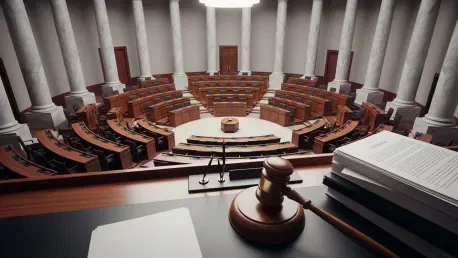
The sudden escalation of kinetic operations within the Middle East has catalyzed a profound transformation in how the international community perceives and supports military interventions led by Washington and Tel Aviv. Unlike the expansive coalitions that characterized historical conflicts in Iraq

The terrifying structural failure of a major transit artery often begins with a single mechanical glitch aboard a massive vessel whose weight dwarfs the engineering safeguards of a bygone era, leaving the nation's supply chains hanging by a metaphorical thread. This chilling reality became a

The political landscape in Washington has transformed into a complex arena of high-stakes legal battles and procedural maneuvers as the 118th Congress navigates a turbulent relationship with the executive branch. This friction is not merely a byproduct of partisan disagreement but stems from a

The landscape of federal labor relations currently faces an unprecedented challenge as the executive branch and the judicial system clash over the fundamental rights of nearly two-thirds of the government workforce. This tension reached a fever pitch when the Office of Personnel Management issued

A political savant and leader in policy and legislation, Donald Gainsborough is at the helm of Government Curated. With Canada unveiling a monumental shift in its defense and industrial strategy, his insights are crucial for understanding the tectonic changes ahead. This interview explores the

The personal information you entrust to the federal government exists in a legal landscape designed for a world of paper records and filing cabinets, not one of interconnected databases and cloud servers. A federal law enacted half a century ago, the Privacy Act of 1974, stands as the primary